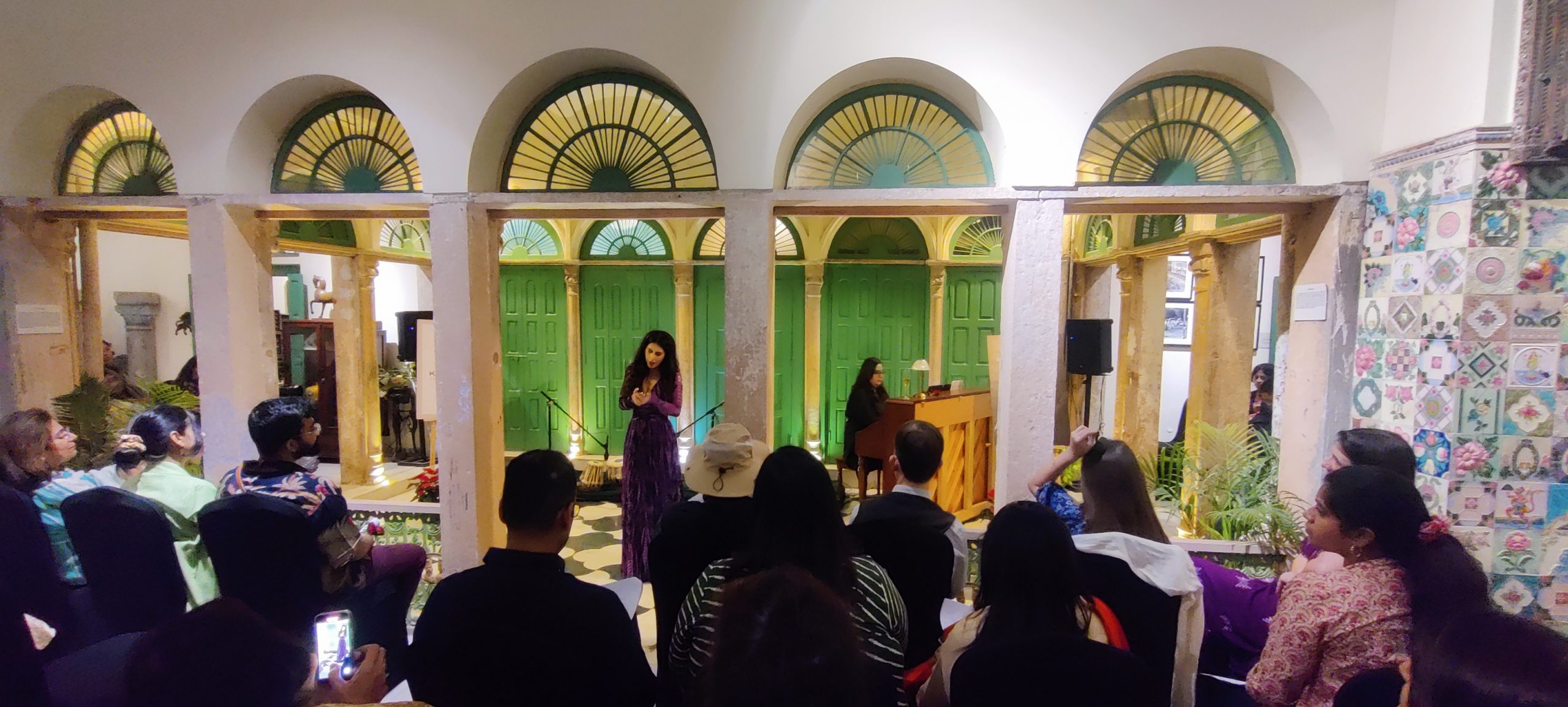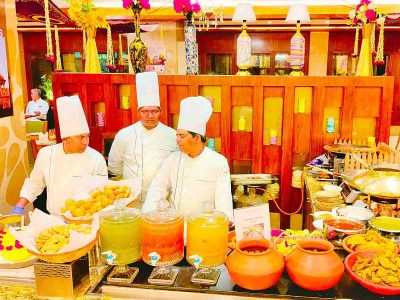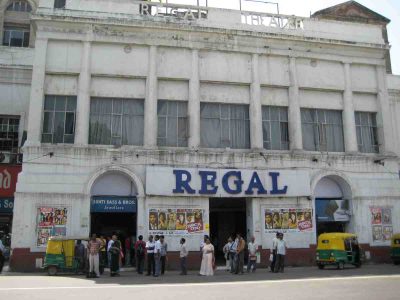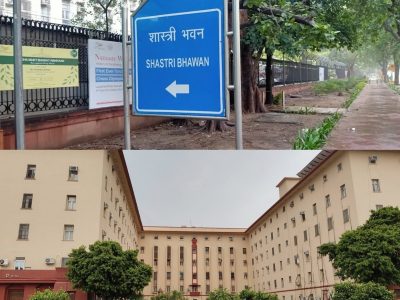In the heart of the walled city, where history’s whispers echo through the hidden havelis and age-old parantha shops, the Kathika Cultural Centre (KCC) reminds one of the city’s rich cultural heritage.
Founded and meticulously curated by Atul Khanna, a scion of one of Delhi’s oldest families, Kathika Cultural Centre is not merely a museum; it is a vibrant, living celebration of Delhi’s glorious past.
Kathika, inspired by ancient storytelling traditions, opened its doors in May 2023, capturing the essence of katha-wachan and dastangoi. This unique space, called Neem Ki Haveli and nestled within two havelis facing each, is a treasure trove of artifacts, books, vintage tech, and more. Visitors experience the charm of an indoor, air-conditioned area and a quaint courtyard, surrounded by the timeless aura of the centre that is built around a majestic neem tree.
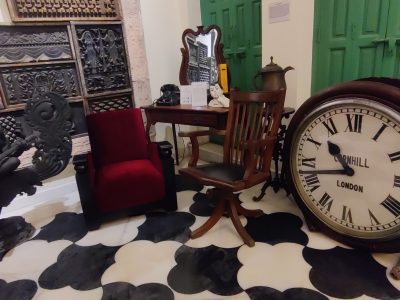
For Atul Khanna, the changing landscape of his beloved city was both a lament and a call to action. Upon stumbling upon an article detailing the crumbling havelis of Sita Ram Bazaar in the walled city in 2015, Khanna embarked on a passionate journey to restore these historical structures. Eight years of dedicated effort later, he successfully resurrected two late 19th-century havelis, transforming them into Kathika Cultural Centre.
“In 2015, I stumbled upon a newspaper article detailing the crumbling state of two late 19th-century havelis. This discovery ignited a passion within me, driving me to restore these heritage structures,” Khanna told Patriot.

“My roots in Purani Dilli and a deep sense of responsibility led me to establish Kathika Cultural Centre, a sanctuary preserving the forgotten cultural treasures of Purani Dilli and beyond,” said Khanna.
Kathika is curated with artifacts like old typewriters, vintage clocks, and rare archival photographs from the Mahatta Archives. It is a glimpse into a bygone era, an opportunity for visitors to immerse themselves in Delhi’s history and traditions.
“Through Kathika, I have aimed to revive the grandeur of this city,” Khanna emphasised.
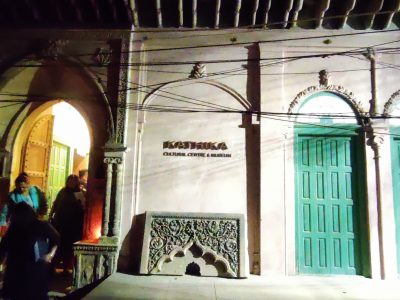
Kathika offers unique experiences.
“It’s not just a museum; it is a storyteller. We host workshops, baithaks, culinary experiences, and more, reviving the city’s nostalgic traditions. Our goal is to kindle a fervour for our heritage, especially among the younger generation and international visitors,” Khanna said.
Khanna stressed Kathika’s commitment to the local community by organising educational outreach programs, storytelling sessions, and activities like street photography in collaboration with Vivo Phones.
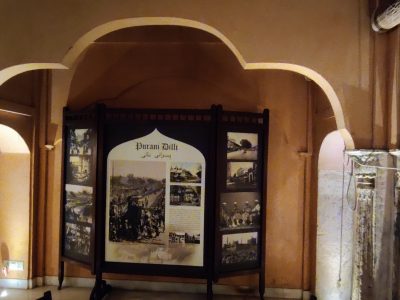
“By instilling a love for our heritage, we hope to leave a lasting impact on future generations. Our efforts extend to organising cleanliness drives and fostering a sense of community pride,” he added.
Governmental support, according to Khanna, is crucial.
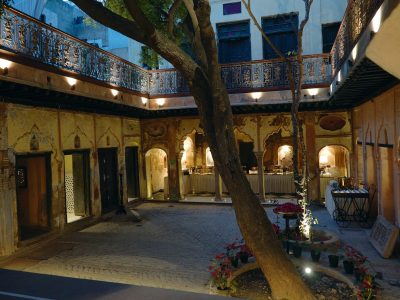
“The government can play a pivotal role by recognising initiatives like Kathika and simplifying clearance processes. A unified approach would encourage more projects aimed at preserving our cultural heritage, ensuring its legacy for generations to come.”
Beyond his passion for heritage conservation, Khanna has made a remarkable impact on the business landscape.
With over 20 years of experience in international business and a deep understanding of the Indian market, he actively participates in the cold chain sector, having served as a Member of the Committee for Supply Chain and Logistics in the Ministry of Agriculture.
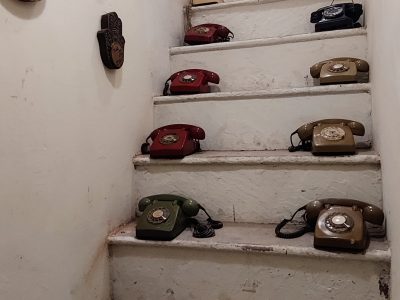
Khanna has been bestowed with many awards, including the Satte Award and the Rajasthan Rattan Award, recognising his contributions to heritage conservation and business innovation.
He has also transformed a twin haveli in Churi Ajitgarh in Rajasthan into the exquisite Vivaana Culture Hotel. Additionally, his ongoing conservation work at the Jaipuria Haveli and Poddar Haveli in Shekhawati, Rajasthan, showcases his unwavering commitment to preserving India’s architectural legacy.

